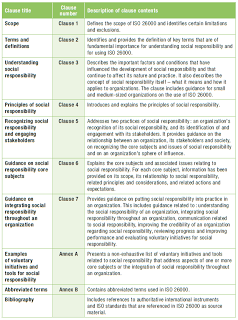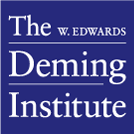What is ISO 26000:2010 – Guidance on SR?
ISO 26000 is an international standard released by ISO – International Organization for Standardization – in November 2010, that focuses its discussion on Social Responsibility (SR).
It was developed using a multi-stakeholder approach involving experts from more than 90 countries and 40 international or broadly-based regional organizations involved in different aspects of SR. These experts were from six different stakeholder groups: consumers; government; industry; labor, non-governmental organizations (NGOs); and service, support, research, academics and others. In addition, specific provision was made to achieve a balance between developing and developed countries as well as a gender balance in drafting groups.
What does SR means?
It refers to the responsibility of an organization for the impacts of its decisions and activities on society and the environment, through transparent and ethical behavior that:
- contributes to sustainable development, including health and the welfare of society;
- takes into account the expectations of stakeholders;
- is in compliance with applicable law and consistent with international norms of behavior; and
- is integrated throughout the organization and practiced in its relationships
The main goal of this standard is to provide guidance on how businesses and organizations should act in an ethical and transparent way that contributes to maximize its contribution to sustainable development, including health and welfare of society, emphasizing in the importance of results and improvements in performance on SR.
The guidance focus on:
- underlying principles of SR (see 7 Principles in Part 2)
- recognizing SR and engaging stakeholders,
- the core subjects and issues pertaining to SR (see Table 2 in Part 2)
- ways to integrate socially responsible behavior into the organization (see Schematic Overview in Part 2).
An organization’s performance in relation to the society in which it operates and to its impact on the environment has become a critical part of measuring its overall performance and its ability to continue operating effectively. This is, in part, a reflection of the growing recognition of the need to ensure healthy ecosystems, social equity and good organizational governance. In the long run, all organizations’ activities depend on the health of the world’s ecosystems.
- its competitive advantage;
- its reputation;
- its ability to attract and retain workers or members, customers, clients or users;
- the maintenance of employees’ morale, commitment and productivity;
- the view of investors, owners, donors, sponsors and the financial community; and
- its relationship with companies, governments, the media, suppliers, peers, customers and the community in which it operates.
The good news is that organizations around the world, and their stakeholders, are becoming increasingly aware of the need for and benefits of socially responsible behavior.
Does it have to be certified?
No. ISO 26000 provides guidance/advises/information about the implementation of SR principles rather than requirements, so it is neither intended nor appropriate for certification purposes.
Apply/use ISO 26000 is a voluntary election.
Who can use the standard?
Every organization is encouraged to become more socially responsible by using this standard.
It is intended to be useful to all types of organizations:
- in the private, public and non-profit sectors,
- whether large or small,
- whether operating in developed or developing countries,
- for those beginning to address SR, as well as those more experienced with its implementation.
ISO 26000 outline
(Click on the image to enlarge Table 1)






